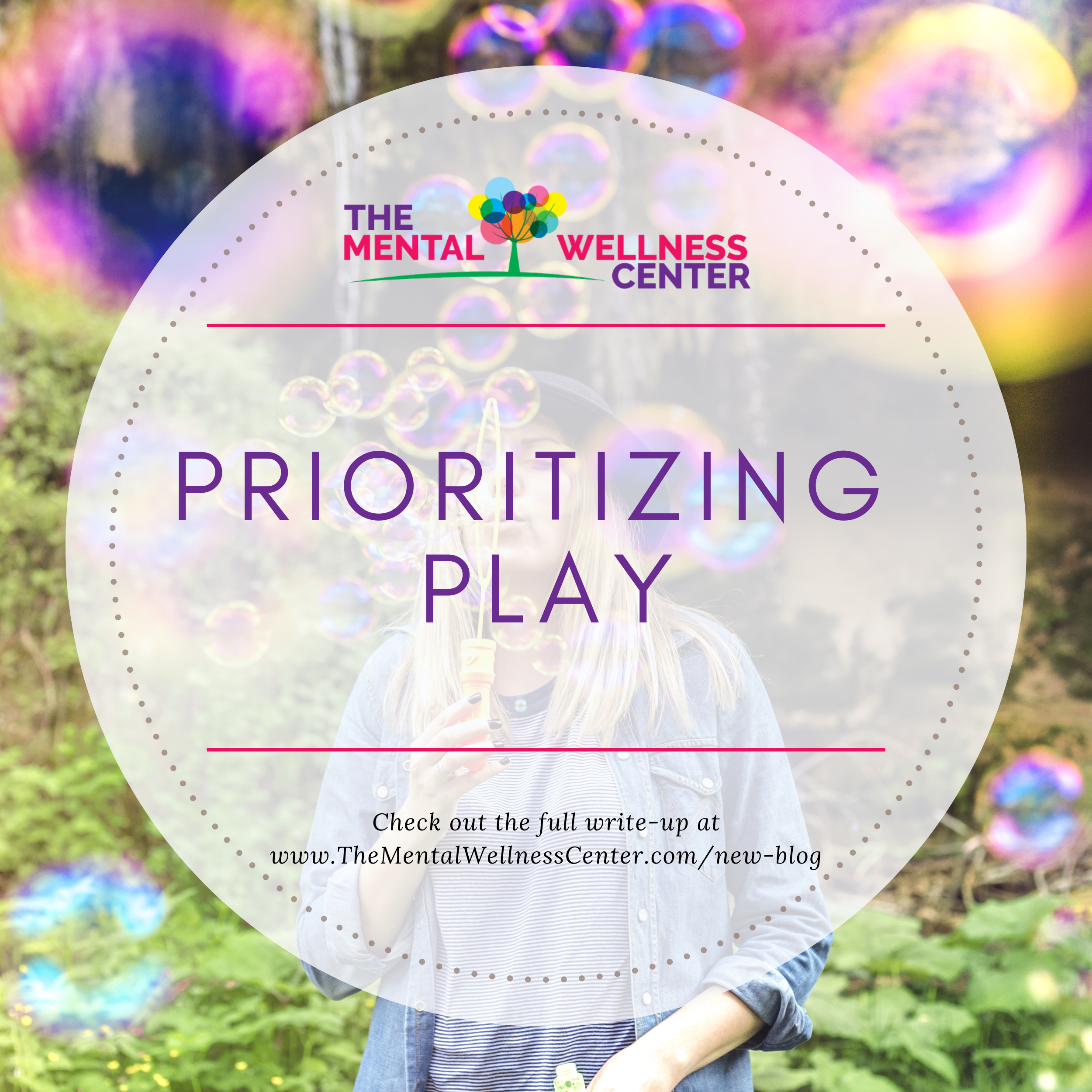Prioritizing Play
For many of us when we think about play, it’s instantly associated with children. For many adults, even the concept of play can be uncomfortable. As a society, we tend to dismiss the concept of playing as an adult. Many adults become consumed with the drive to be productive, and view playing as some sort of guilty pleasure.
The need for play is typically lost during the process of becoming an adult. For many people, as play is cast aside (as something meant for children) most of what adults are left with is work. According to The National Institute For Play, it’s imperative to the brain growth of children for them to play. What about adults, though?
Dr. Stuart Brown identifies that play is something that is done for its own sake. Dr. Brown explains that play needs to be voluntary, pleasurable, includes a sense of engagement, and it takes you away from the concept of time. Dr. Brown emphasizes that the act itself is actually more important than the outcome of play. Given that description, it makes sense why it’s so hard for adults to engage in play right? Many adults are so focused on productivity, tasks, and being busy that we’ve forgotten how to play. For many of us, it seems like a very foreign concept.
Play is such an important concept for most adults. It’s about more than just preventing burn-out, which is what most people attribute play to. Play is a very encompassing activity for adults. A few of the benefits play offers includes:
Boosts creativity
Appreciating beauty
Approaching life with excitement and energy
Playful expressions of love
A sense of hope
Sense of humor
Relieves stress
Bolster the immune system
Stimulates new brain growth
Enhances brain function
Increases overall sense of well-being
Relieves stress
Aids in decision making
Improves brain function
Heals emotional wounds
Enhances your social skills
Improves verbal skills
Reduces stress
Improved mood
Feeling more supported
Enhances emotional connection
Regulates the central nervous system
When introducing play to many of our adult clients, including the benefits of play, the next big obstacle is how to begin playing. When you’ve embraced concepts such as productivity is how you determine your worth, the grind culture, and playing is for children.
The “how” to incorporate play oftentimes feels more complicated than it actually is. We typically encourage our clients to get out of their heads, and stop thinking so much about play. Some examples of ways to begin playing include:
Jump in muddy puddles
Play in the rain
Go sledding
Go to a park
Blow some bubbles
Play in the snow
Swing
Play with an animal
Begin a game night with friends, family, or coworkers
Embrace silliness
Sing
Dance
Take up gardening or repot a plant (it doesn’t matter how many times you kill them)
Learn a new skills
Color
Put together a puzzle
Paint
Play with play dough
Be silly
Eat Ice cream
Draw with chalk
Skip rocks in the river
Count starts at night
Imagine clouds are designs
Watch cartoons
Build a snowman
Create a sandcastle
Play video games
Play can be such an overwhelming topic that it can be difficult to get out of your own way. Here are some things to explore surrounding play: did you enjoy playing as a child, what was your favorite way to play, how does it feel in your body when you begin to play, what are your thoughts about play.
If you are still feeling any level of resistance after reading this blog here are our reminder recommendations:
Who do you know that is a “fun” person
Incorporate small steps to increase fun at work
Make the commitment to play
Schedule time to play in your planner or schedule
Set up a legitimate play date
Watch others play
From a central nervous system perspective, when we are playing we are in the ventral vagal state (PolyVagal). Play also accesses the social connected piece of our vagus nerve. It is highly improbable to engage in play and also feel anxiety.
If you would like some assistance with establishing play, consider setting up an appointment with one of our therapists. Some of our clinicians have immediate openings available. Learn more about our providers here: https://www.thementalwellnesscenter.com/providers
When you are ready to schedule an appointment with a provider, feel free to call us at 309-807-5077 or email us at Info@TheMentalWellnessCenter.com

